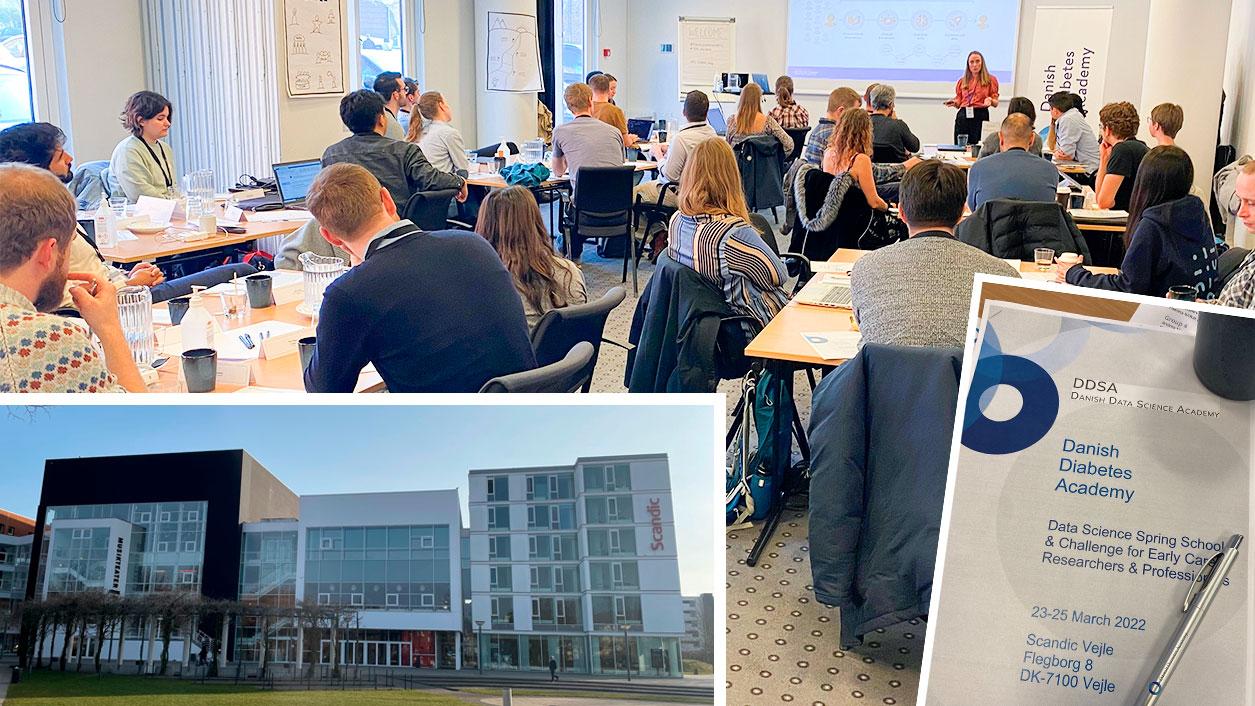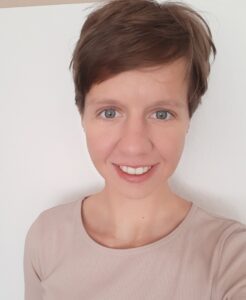Data Science Spring School & Challenge for Early Career Researchers

An experience report by Theresa Wilkat
After a very long time, it was the first event that was not held online. This means no virtual rooms, thus, I needed to re-learn how to organize a real trip. Luckily, the organizers of the Data Science Spring School from the 23-25.03.2022, the Danish Diabetes Academy and the Danish Data Science Academy, took care of the accommodation, such that I only needed to plan my journey to Vejle in Denmark.
Besides these organizational difficulties, there was another, almost completely new component. Seeing other scientist in real-life and talking with them outside of breakout-rooms, a very nice experience again.
One mail goal of this event was to gather researchers with different backgrounds: data-scientist, clinicians and everyone in-between, in order to support interdisciplinary networking. Concerning the topic of the Data Science School, machine learning and deep learning techniques in diabetes research, these interdisciplinary collaborations are much needed, for both sides.
It was a very gainful meeting, because all the participants had such an open mindset, each single one willing to learn a “new language” – the one of the clinicians, respectively the data scientists one.
As diverse as the backgrounds of the participants, so was the background of the speakers. We heard a very eye-opening talk by Martin Vesterby about why t-shaped people bring more value and Matthew Fenech talked about AI Ethics, just to mention a few.
Besides the new and very interesting input with regard to content, I especially benefited from networking with colleagues who have different backgrounds, particularly in the early stages of my doctoral research this is very helpful.
Regarding my own work and projects, I am curious to find out to what extent deep learning algorithms could help to build less arbitrary network-based approaches to analyse microbiome and multi-omics data.
For the next two months, the organizers Adam Hulman (Senior Data Scientist at the Steno Diabetes Center Aarhus) and Katharina Herzog (Lead Scientist at Novo Nordisk in Copenhagen), left us with a data challenge, which we will work on remotely in small groups. The ECG-dataset (PTB-XL) and a dataset containing 24 hour ECG data from type 2 diabetics offer a lot of opportunities to put into practice what we have learnt at the Bootcamp. All groups will present their results at a closing event at the end of May. I am already looking forward to see the different approaches that have been taken for this challenge and learn from them.
Please find further information about the event here.

